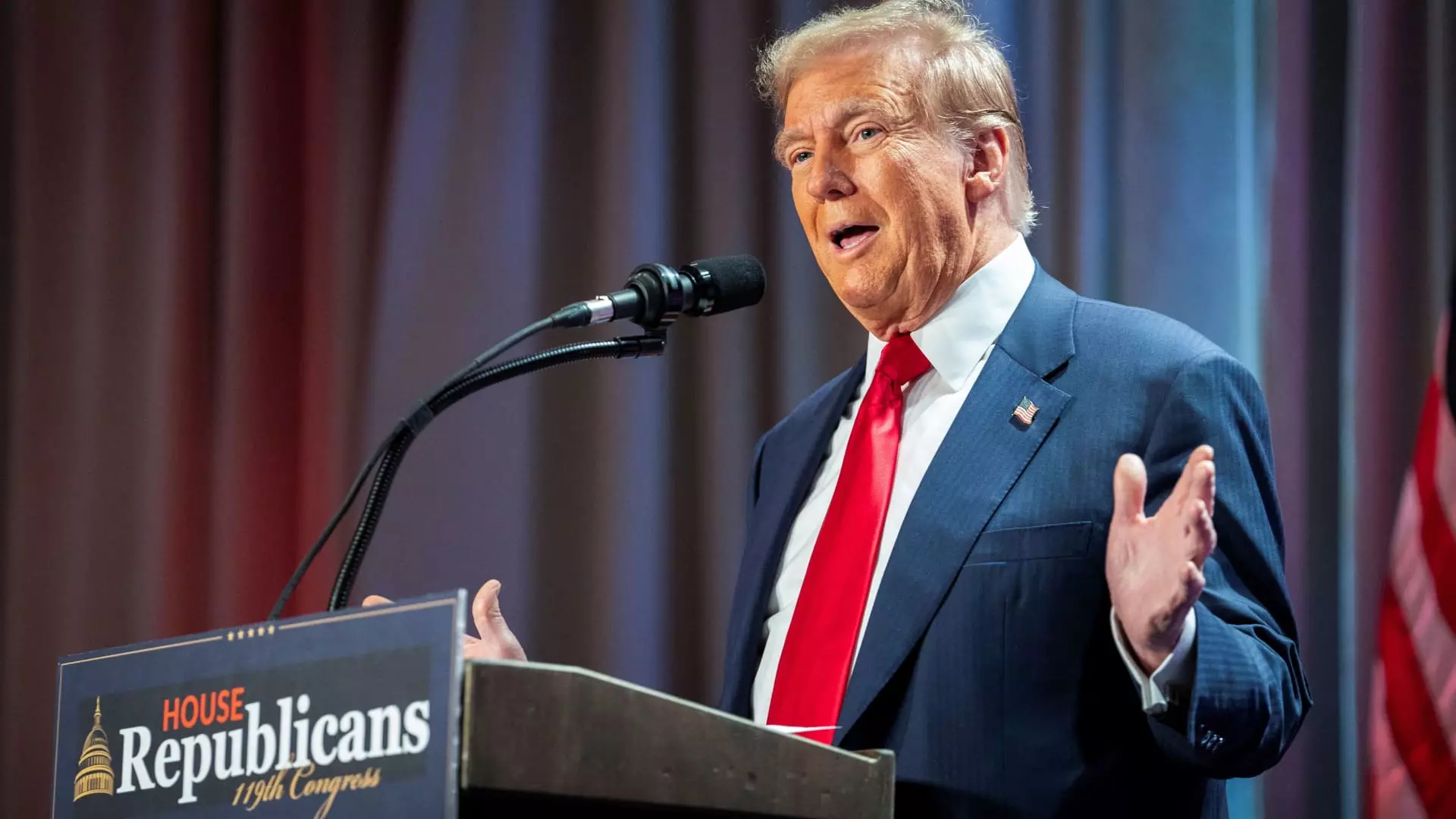With the imminent appointment of Chris Wright to lead the Department of Energy under President-elect Donald Trump, the U.S. energy landscape is poised for a significant shift. Wright, a fervent advocate for fossil fuels and the founder of Liberty Energy, represents a stark departure from previous energy policies that have sought to diversify sources and promote renewable energy. His appointment signals a prioritization of oil and gas production, bolstered by his claims that there is no ongoing climate crisis and that the current push for energy transition efforts is exaggerated and politically motivated.
Wright’s background in the oil and gas sector grants him a unique perspective, albeit shaped by an agenda that aligns closely with Trump’s own—maximizing fossil fuel output amidst a growing global push for cleaner energy. His dismissive stance towards climate change activism, coupled with his comparisons of such movements to Soviet-style communism, raises concerns about the direction in which he might steer U.S. energy policies. Given the complexities of climate issues and the necessity of global cooperation in addressing them, Wright’s views could alienate international allies who are increasingly focused on collective climate solutions.
Wright’s commitment to fossil fuels stems from his belief in their role in alleviating poverty, a point he has stressed through various writings. However, the reliance on fossil energy carries repercussions far beyond immediate economic benefits. The global climate crisis, which manifests through rising temperatures and extreme weather events, is fundamentally intertwined with fossil fuel extraction and consumption. Wright’s public stance may therefore impede meaningful discussions necessary for innovative energy solutions that could mitigate such crises.
While he aims to elevate U.S. oil production, it is essential to consider the broader impact of such policies. The future of energy is not solely dictated by supply; the rising demand for electricity driven by innovations like artificial intelligence and electric vehicles presents an opportunity to rethink energy consumption. Therefore, while increasing oil output may provide short-term economic uplift, it risks overlooking future-oriented strategies involving sustainable energy sources.
The transition from former Secretary Jennifer Granholm, a supporter of renewable energy sources, to Wright’s unwavering allegiance to fossil fuels will further entrench polarization within energy discussions. Granholm’s focus on carbon-free alternatives reflects an attempt to bridge partisan divides in energy policy, recognizing the necessity for bipartisan cooperation. Conversely, Wright’s leadership may exacerbate these divides, particularly regarding contentious topics such as the expansion of nuclear power—a relatively common ground in energy discussions but complicated by financial and regulatory challenges.
Furthermore, aspects of energy diplomacy and the management of the Strategic Petroleum Reserve will now rest in Wright’s hands. Given the contentious nature of energy markets, both domestically and internationally, his approach to fostering relationships with other nations on energy issues will be critical. Will he prioritize America’s energy independence, or will he adopt a more collaborative approach that considers global interdependence in energy security? The former could result in isolationist tactics that antagonize critical allies, while the latter may lead to a more diplomatic stance that aligns with international climate agreements.
We are at a pivotal moment in U.S. energy policy. The appointment of Chris Wright, while reflective of certain political affiliations, minimizes the pressing evidence necessitating a shift towards sustainability amidst an ever-evolving energy demand landscape. The obstacles that lay ahead for Wright and the incoming administration will be considerable, as they confront contradictions between immediate economic desires and long-term ecological imperatives.
For citizens and policymakers alike, the challenge will be to ensure that energy policy not only seeks to satisfy current demands but also considers the environmental ramifications and future generations. Wright’s leadership could very well set the tone for what’s to come: a revival of fossil fuel dependence or an opportunity to innovate towards sustainable solutions that can coexist with traditional energy sources. Thus, navigating this transition will require foresight, compromise, and an openness to evolving beyond entrenched views. In the coming years, the true legacy of Wright’s appointment will hinge on how effectively he can reconcile economic growth with the necessity of addressing climate change.


Leave a Reply